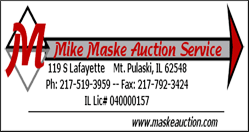 It's called "merchant surcharging" and it's permitted in most states. You can be
charged up to 4 percent on each transaction and, similar to sale taxes, merchant
surcharging can be automatically added to your bill. After a while, these
charges can add up, so consumers may want to reconsider how they pay for goods
and services. It's called "merchant surcharging" and it's permitted in most states. You can be
charged up to 4 percent on each transaction and, similar to sale taxes, merchant
surcharging can be automatically added to your bill. After a while, these
charges can add up, so consumers may want to reconsider how they pay for goods
and services.
Why now? Well, merchants have long been charged a processing fee by the
credit card companies when consumers chose to charge their purchases.
Previously, the fee could not be passed along to customers. However, as a result
of litigation, merchants in the U.S. and its territories can pass that fee along
directly to customers using credit cards (but not debit or prepaid cards).

What can consumers do?
-
Use cash for smaller
purchases. Some retailers may offer you a discount if you pay with cash.
-
Look for notices about
merchant surcharges. Retailers are required to provide the information so
you can decide beforehand if you want to pay with a credit card.
-
Use a debit card with "bricks
and mortar" establishments you know and trust. Find trustworthy businesses
at www.bbb.org.
-
Use a credit card for online
purchases when you need the greater protections that credit cards offer.
-
Get into the habit of monitoring your bank account
and credit card accounts online.
[to top of second column] |

Several states have banned merchant surcharges: California,
Colorado, Connecticut, Florida, Kansas, Maine, Massachusetts, New
York, Oklahoma and Texas. In other states, it's optional and will
vary from store to store.
For more information on managing your credit, check out BBB's
"Managing Credit -- Made Simpler" at
www.bbb.org/credit-management.
___
For 100 years, the Better Business Bureau has been helping
consumers find businesses, brands and charities they can trust. In
2012, consumers turned to BBB more than 100 million times for
reviews on more than 4 million companies and reports on 11,000
charities, all available for free at
www.bbb.org. The Council of Better Business Bureaus is the
umbrella organization for 114 local, independent BBBs across the
United States and Canada, as well as home to its national programs
on dispute resolution and industry self-regulation.
[Text from file received from the
Better Business Bureau of
Central Illinois]

|